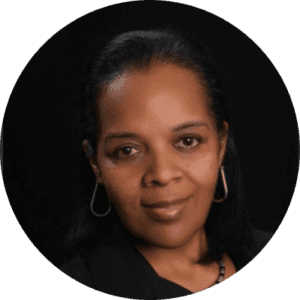The idea of diversity in teams may conjure images of varied ethnicities, genders, and cultures. While these dimensions are crucial, diversity also encompasses an array of personalities and behavioral tendencies. In an effective team, each member brings a unique blend of traits shaped by upbringing, experiences, and inherent disposition. This holistic view of diversity forms the foundation for collaborative excellence.
Recent research underscores the profound impact of personality diversity on team dynamics and organizational performance. Teams with high diversity exhibit increased levels of creativity, resilience, and adaptability.
At The Omnia Group, we are committed to advancing the understanding and appreciation of personality diversity in the workplace. Helping clients since 1985 in the talent optimization industry, we recognize the transformative impact of leveraging individual differences to drive organizational performance. Starting at the top, hiring diverse personalities, fostering inclusive collaboration, and knowing how to manage it all can bring you success beyond just the bottom line.
Championing Diversity Captains
Leadership plays a pivotal role in advocating for diversity within teams. Leaders need to believe in openness, empathy, and collaboration. Actively seek diverse viewpoints and create opportunities for all team members by sending questions to everyone. You could use a program like SurveyMonkey to help gather the data, and it can be anonymous, which may help more introverted people participate.
Creating a sense of belonging requires intentional effort and commitment. Inclusive leaders lead by example, actively seeking out various ideas and not feeling threatened by employees who offer better solutions. They also create opportunities for all employees to participate and contribute, regardless of their background or personality type. By modeling inclusive behavior and fostering a culture of belonging, these leaders inspire trust and innovation within their teams.
Capitalizing on the Differences
Personality diversity within teams comes in various forms, such as risk-taker versus risk-averse, gregarious versus reserved, quick-paced versus methodical, and big-picture versus detail-oriented approaches to tasks. Each dimension offers distinct strengths and perspectives that enrich team dynamics. Activating these diverse personalities fosters inclusive collaboration, leading to enhanced problem-solving, and productivity.
For instance, reserved team members often excel in deep reflection, bringing depth and insight to complex problems. On the other hand, gregarious team members thrive in social interactions and drive enthusiasm within the team. By harnessing the strengths of both types of people, you not only get wonderful solutions but also create an environment where people are pumped up and excited about their work.
Fostering Inclusive Collaboration
Actively cultivating psychological safety is key. This can be achieved by supporting open communication, trust, and respect within your teams. Do not let position titles limit employees’ ability to have input or start initiatives. Actively encourage dialogue and feedback, creating a space where individuals feel comfortable expressing their ideas and opinions without fear of judgment or reprisal. When leaders focus on strengths and celebrate unique contributions, they enable individuals, teams, and the company to thrive.
Creating a feeling of fitting in (FOMO is real a real thing) requires intentional effort and commitment from leaders. It involves establishing policies, practices, and norms that push equity, fairness, and inclusivity. To achieve this, leaders need to celebrate diversity and provide opportunities for professional growth and development for everyone. By prioritizing inclusive collaboration, you can build environments where individuals feel empowered to bring their authentic selves to work, driving collaboration and success.
Best Practices for Managing Diverse Personalities
i) Resolving Conflict:
Regular team meetings and one-on-one sessions where employees can voice their concerns help create a transparent environment. Practice active listening by showing genuine interest and using reflective techniques to understand different perspectives, addressing miscommunications promptly to prevent escalation.
ii) Fostering Empathy:
Organize activities that require collaboration and communication, helping team members understand each other’s perspectives. Include empathy as a criterion in performance evaluations, acknowledging and rewarding employees who demonstrate understanding and compassion.
iii) Promoting Mutual Understanding:
Generate mutual understanding by providing opportunities for the team to share their unique perspectives and experiences. Have everyone share their Omnia Development report, which does not have a score but provides insight into their personality.
Diversity in teams is a catalyst for success.
By not only embracing diversity but proactively seeking and creating it, you can drive collaborative excellence and enhance both engagement and retention. You will be better equipped to navigate complex issues, adapt to change, and seize new opportunities in today’s continuously evolving workplace.
Understanding, valuing, and leveraging the unique attributes of each individual can help leaders create a culture where everyone feels valued and empowered to utilize their unique talents to achieve shared goals.
Reach out today to find out how Omnia’s suite of assessment tools can provide you with deeper insights into the innate behavioral traits of your employees. Our clients use us as the starting block as well as the rebuilder to foster an environment of collaboration, innovation, and mutual respect.























